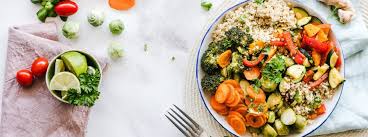
The Ultimate Guide to Low-Calorie Diet Foods
In the quest for a healthier lifestyle, many individuals turn to low-calorie diets to shed unwanted pounds and improve overall well-being. Incorporating low-calorie foods into your daily meals can help you achieve your weight loss goals without sacrificing flavor or nutrition. This article explores various low-calorie foods that can form the cornerstone of a balanced and satisfying diet.
Understanding Low-Calorie Foods
Low-calorie foods are those that provide fewer calories per serving while still offering essential nutrients. These foods are typically high in water and fiber content, which helps you feel full longer and reduces the temptation to overeat. By integrating these foods into your diet, you can enjoy a variety of delicious meals that support your weight loss journey.
Top Low-Calorie Foods to Include in Your Diet
1. Leafy Greens
Leafy greens like spinach, kale, and arugula are low in calories but packed with vitamins, minerals, and antioxidants. These vegetables are versatile and can be added to salads, smoothies, and soups. Their high fiber content helps promote satiety, making them an excellent choice for those looking to cut calories.
2. Cruciferous Vegetables
Cruciferous vegetables such as broccoli, cauliflower, and Brussels sprouts are another great option for a low-calorie diet. These vegetables are rich in fiber and nutrients, providing significant health benefits while keeping calorie intake low. They can be roasted, steamed, or added to stir-fries for a nutritious and satisfying meal.
3. Berries
Berries like strawberries, blueberries, and raspberries are naturally low in calories and high in fiber, vitamins, and antioxidants. These fruits make for a delicious snack or a sweet addition to breakfast cereals, yogurts, and desserts. Their natural sweetness can also help curb sugar cravings, making them a smart choice for a low-calorie diet.
4. Lean Proteins
Protein is essential for muscle maintenance and overall health. Choosing lean protein sources such as chicken breast, turkey, tofu, and legumes can help you stay within your calorie limits while meeting your nutritional needs. These proteins are versatile and can be used in a variety of dishes, from salads to main courses.
5. Greek Yogurt
Greek yogurt is a protein-rich, low-calorie food that can be enjoyed on its own or as part of a meal. It’s an excellent source of calcium and probiotics, which support digestive health. Opt for plain, non-fat Greek yogurt and add fresh fruit or a drizzle of honey for natural sweetness without the extra calories.
6. Whole Grains
Whole grains like quinoa, brown rice, and oats provide sustained energy and are packed with fiber, which aids digestion and promotes fullness. These grains can be used as a base for meals or as a side dish, helping you stay satisfied while maintaining a low-calorie intake.
7. Cucumbers and Celery
Cucumbers and celery are almost entirely water, making them extremely low in calories. They are perfect for snacking or adding crunch to salads. These vegetables also provide hydration and essential vitamins and minerals, contributing to overall health.
Tips for Incorporating Low-Calorie Foods
1. Plan Your Meals: Planning your meals ahead of time can help you make healthier choices and avoid high-calorie temptations.
2. Portion Control: Even low-calorie foods can contribute to weight gain if consumed in large quantities. Pay attention to portion sizes to maintain a balanced diet.
3. Stay Hydrated: Sometimes, thirst is mistaken for hunger. Drinking plenty of water throughout the day can help manage hunger and support weight loss.
4. Experiment with Recipes: Exploring new recipes can make eating low-calorie foods more enjoyable. Look for creative ways to incorporate these foods into your meals.
Conclusion
Adopting a Low calorie diet foods doesn’t mean you have to compromise on taste or nutrition. By integrating a variety of low-calorie foods into your daily meals, you can enjoy flavorful and satisfying dishes while working towards your weight loss goals. Remember to plan your meals, control portion sizes, and stay hydrated to maximize the benefits of a low-calorie diet. Start your journey today and experience the positive impact of these nutritious foods on your health and well-being.




